
Fall 2025 (August-December) Pesticide Safety Schools
The fall 2025 Pesticide Safety Schools are available to those seeking initial licensing in one or more pesticide subcategories. To …



El inglés es el idioma de control de esta página. En la medida en que haya algún conflicto entre la traducción al inglés y la traducción, el inglés prevalece.
Al hacer clic en el enlace de traducción se activa un servicio de traducción gratuito para convertir la página al español. Al igual que con cualquier traducción por Internet, la conversión no es sensible al contexto y puede que no traduzca el texto en su significado original. NC State Extension no garantiza la exactitud del texto traducido. Por favor, tenga en cuenta que algunas aplicaciones y/o servicios pueden no funcionar como se espera cuando se traducen.
Inglês é o idioma de controle desta página. Na medida que haja algum conflito entre o texto original em Inglês e a tradução, o Inglês prevalece.
Ao clicar no link de tradução, um serviço gratuito de tradução será ativado para converter a página para o Português. Como em qualquer tradução pela internet, a conversão não é sensivel ao contexto e pode não ocorrer a tradução para o significado orginal. O serviço de Extensão da Carolina do Norte (NC State Extension) não garante a exatidão do texto traduzido. Por favor, observe que algumas funções ou serviços podem não funcionar como esperado após a tradução.
English is the controlling language of this page. To the extent there is any conflict between the English text and the translation, English controls.
Clicking on the translation link activates a free translation service to convert the page to Spanish. As with any Internet translation, the conversion is not context-sensitive and may not translate the text to its original meaning. NC State Extension does not guarantee the accuracy of the translated text. Please note that some applications and/or services may not function as expected when translated.
Collapse ▲
The fall 2025 Pesticide Safety Schools are available to those seeking initial licensing in one or more pesticide subcategories. To …
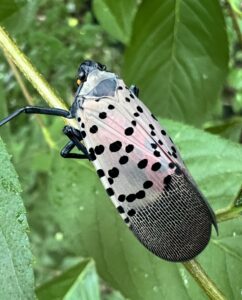
Rockingham County just got an unwelcome new resident — spotted lanternfly (SLF). This isn’t just any insect; it’s an …
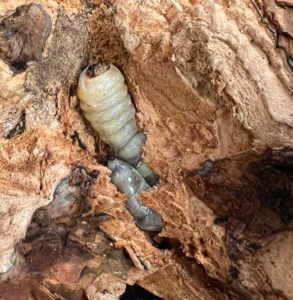
This week, Prionus adults emerged from the soil near the blueberry plants in Pender and Sampson Counties. This is …
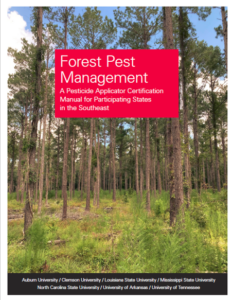
The Pesticide Safety Education Program at NC State University is offering an online exam preparation course for those seeking …
New Pesticide Applicator Certification and Training rules were enacted at the end of 2024. One that will catch many …
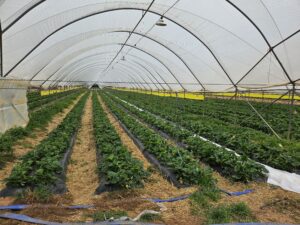
The Pest Management Strategic Plan for Strawberries in VA, NC, SC, GA, and FL has been published! You can access the …
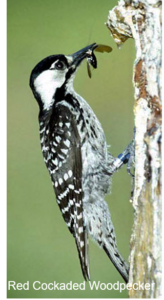
The U.S. Environmental Protection Agency shared the following news release Friday, October 11, 2024, introducing a toolbox of strategies …
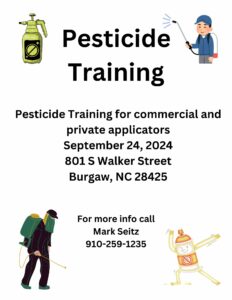
Pesticide safety (V category) training for private pesticide applicators will be held at the Pender County Extension office on September …
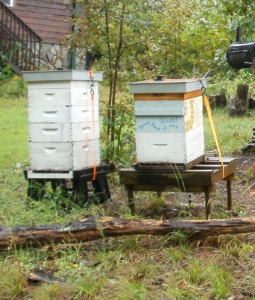
With the track of tropical storm Debby poised to make a significant impact on North Carolina, there are some …
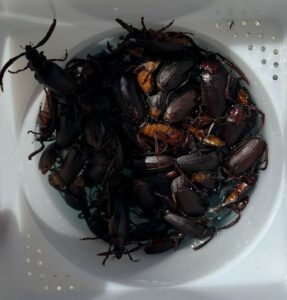
Prionus longhorn beetles, notably Prionus laticollis, Prionus imbricornis, and Prionus californicus (Coleoptera: Cerambycidae), pose significant challenges in agricultural and …
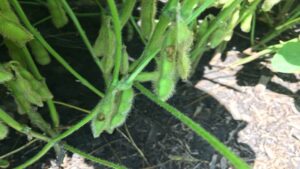
For many years, corn earworm has been the top pest in North Carolina soybeans in terms of cost of …
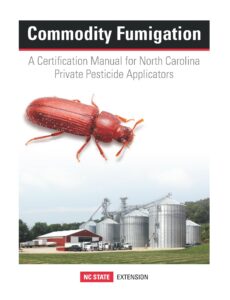
The North Carolina Department of Agriculture and Consumer Services (NCDA&CS) has created a new category for Private Applicator Commodity Fumigation …
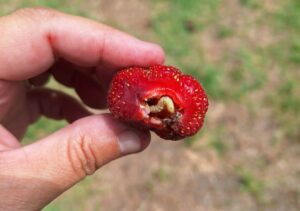
The corn earworm (Helicoverpa zea, Lepidoptera: Noctuidae), a significant pest known for its broad host range, has been reported …
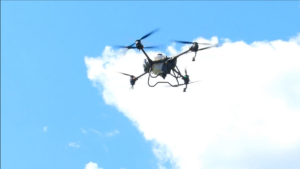
Interest in the use of unmanned aerial vehicles (UAVs), or drones as they are more commonly known, for pesticide …

North Carolina Department of Agriculture and Consumer Services, in cooperation with the N.C. Cooperative Extension – Pender County Center, …

Gummy stem blight is caused by several closely related fungal pathogens in the genus Stagonosporopsis …
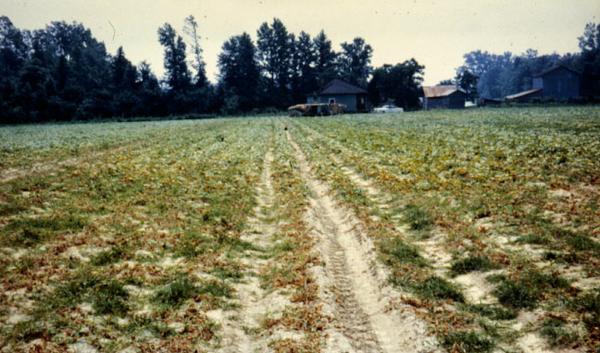
This vegetable pathology factsheet describes the identification and treatment of anthracnose in cucurbits.
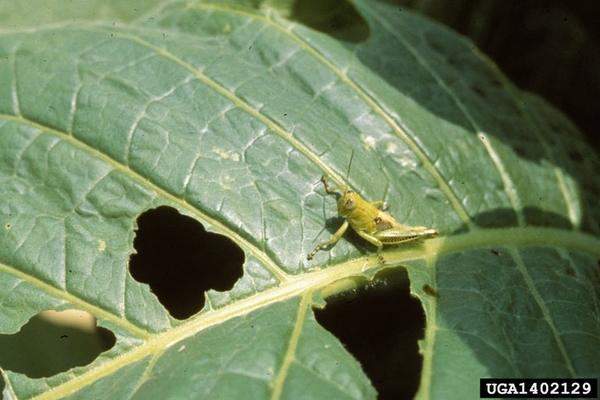
Several species of grasshoppers can cause foliar feeding damage in tobacco. They are typically most …

This Extension publication provides an overview of the tobacco budworm (Chloridea virescens), a common pest …

This factsheet summarizes the characteristics of bees and addresses how to control them as an …

This publication discusses Anthracnose Fruit Rot (Colletotrichum sp.) of blueberries in detail. Included are the …

This factsheet describes the symptoms of a shoot inhibitor herbicide injury.

This factsheet describes the symptoms of a metribuzin herbicide injury.